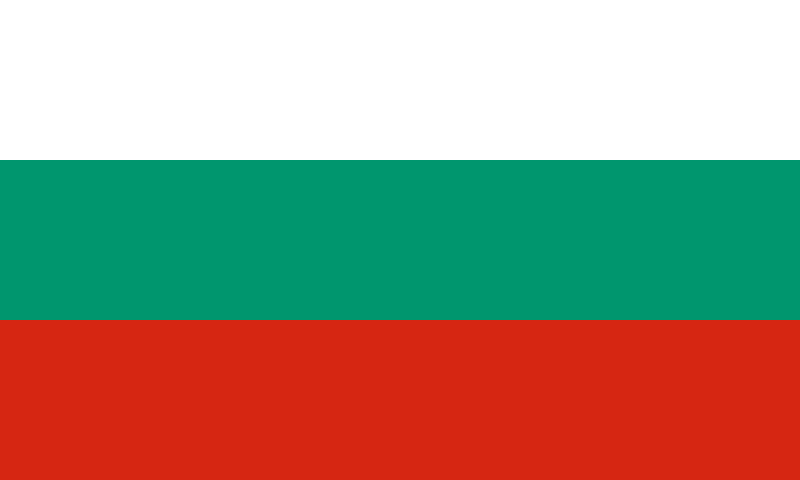

Bulgaria: EU Funds to Boost Energy Efficiency and Solar Thermal Energy
“More than 90 % of the flats and houses in Bulgaria are owned by the people who live in them. Unfortunately, most of this property is in bad shape,” Pavlova said at the presentation of the ERBH programme at the Council of Ministers in Sofia on 12 April 2012. She announced that the OP RD would provide EUR 25 million to make Bulgarian homes more energy-efficient. Between 1 July 2012 and mid-2015, any individual home owner, and associations of flat owners in 36 of the country’s biggest towns, could apply for the money. Applicants can get incentives of up to 50% of the project costs for investing in energy efficiency measures, such as replacing the windows, insulating the front of the house, but also to install solar hot water systems (see table below).
Bulgarians who do not have the money for the remaining half of the investment can apply for loans at reduced interest rates. The Corporate Commercial Bank (CCB) is providing an additional EUR 6.5 million solely for this purpose. Only buildings which were constructed before 26 April 1999 and consist of at least three floors and six apartments are eligible for the ERBH scheme. “With the EUR 31 million, we aim to retrofit up to 200 buildings with more than 6,000 flats,” Pavlova said.
Only two weeks after Pavlova presented her ERBH programme, the Minister of Economy, Energy and Tourism, Delyan Dobrev, has launched his “Energy Efficiency and Green Economy Programme” (EEGEP). Starting on 14 May, small and medium enterprises can apply for subsidies that will cover parts of their project to implement energy-saving and renewable technologies, such as solar heating and cooling. EEGEP is funded by the OP C and has a budget of EUR 150 million. The investment cap for a single project is at EUR 1 million.
As with the ERBH scheme, applicants for EEGEP projects are also required to provide 50% of the project costs themselves. If they fall short of this amount, they can apply for low-interest loans from the EBRD credit line “Bulgaria Energy Efficiency for Competitive Industry Financing Facility” (BEECIFF), which has a total budget of EUR 150 million. “This is a pilot project because it´s the first time a credit line by the EBRD and the Operative Programme Competitiveness together lead to the realisation of such projects,” Dobrev said during the EEGEP presentation on 25 April 2012.
Subsidies are not cumulative, which means residential clients can either use ERBH or REECL and commercial clients either BEERECL or EEGEP. “As it is the general rule with projects financed through EU Operational Programmes, we will check all applications to make sure that energy efficiency projects are not funded through other incentive programmes as well,” Bisser Mladenov from the Ministry of Economy, Energy and Tourism told solarthermalworld.org.
More information:
| Country / Region | Bulgaria |
| Name of programme | Energy Efficiency and Green Economy Programme (EEGEP) |
| Type of incentive | Combination of grants and loans |
| Eligible techno-logies | The list of eligible materials and equipment, which can be found on http://www.beeciff.org, also contains solar water heaters. |
| Applicable sectors | Small and medium enterprises |
| Amount | Applicants can cover 50% of their project costs with a grant from the Ministry of Economy, Energy and Tourism. To co-finance the second half of the investment, they can also apply for low-interest loans from the EBRD scheme “Bulgaria Energy Efficiency for Competitive Industry Financing Facility” (BEECIFF). |
| Maximum incentive | The maximum grant per project is EUR 1 million. |
| Require-ments for system | There are no specific system requirements. |
| Require-ments for installation | There are no specific installation requirements. However, there are two independent programme assistants for technical evaluation and verification issues, who will support applicants in their projects. |
| Finance provider | Ministry of Economy, Energy and Tourism
The loans by the European Bank for Reconstruction and Development (EBRD) are available through six commercial banks (Allianz Bank Bulgaria, DSK Bank Bulgaria, MKB Unionbank, ProCredit Bank Bulgaria, Raiffeisen Bank Bulgaria and UniCredit Bulbank). |
| Total funds | Up to EUR 300 million (EUR 150 million for grants, up to EUR 150 million for loans) |
| Funding sources | EU Structural Fund Operative Programme “Competitiveness” |
| Effective date | 14 May 2012 |
| Expiration date | No expiration date set. |
| Website | http://www.mi.government.bg |
|
Last review of this tabloid |
April 2012 |
|
Contact |
Ministry of Economy, Energy and Tourism
Director OP Competitiveness Ms Greta Dobreva Slavyanska Street 8, 1000 Sofia, Bulgaria Phone: +359 2 940 7500; +395 2 940 7501 |